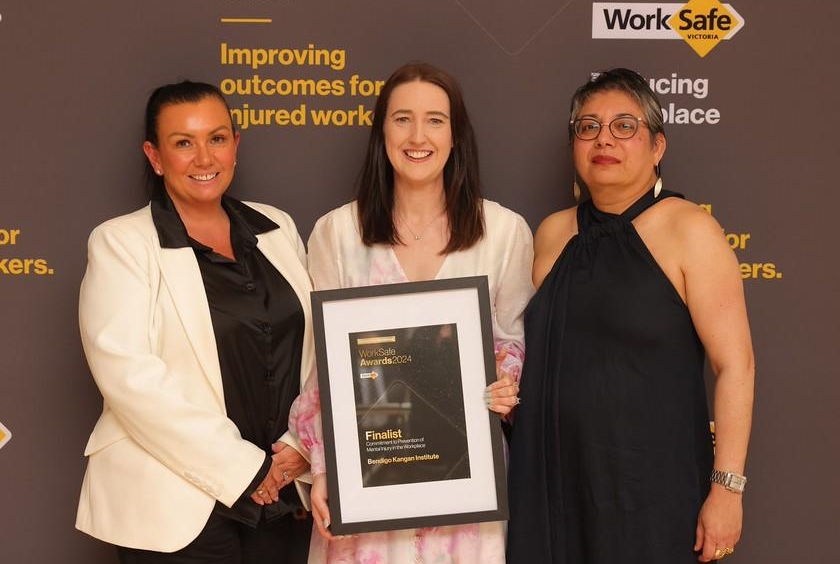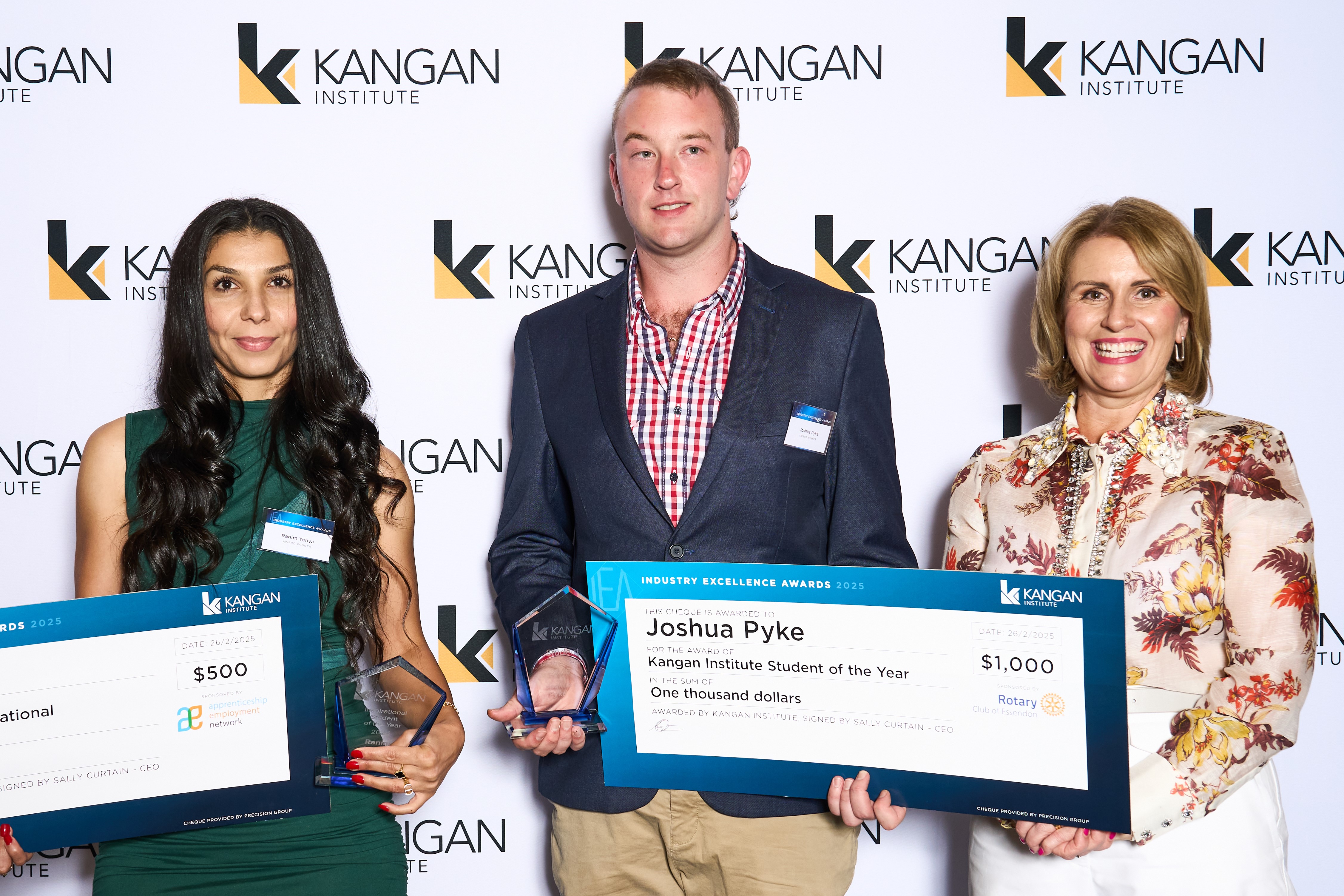Campuses
Kangan Institute Blog
How to Become a Chef
If you are passionate about cooking and have a talent for creating food with a hint of creative flair, begin working your way to the top of the food chain and consider becoming a chef. Whether your dream is running a five-star hotel kitchen or your own boutique cafe, by combining hospitality management training with technical qualifications, you can enjoy the fast-paced and rewarding lifestyle of a chef.
To become a chef you must have professional culinary training, a cook on the other hand may have little or no professional qualifications. Regardless, both are passionate about the food they create and are innovators in the kitchen. Although, if you want to work professionally, training is key. Cooking is an extremely rewarding career and one which will exhibit your natural creativity and will give you the chance to take your training all over the world.
Overview
Chefs are the most skilled cooks in a professional kitchen. A chef prepares food and manages the kitchen staff. This responsibility includes training the cooking staff, keeping track of inventory and ordering supplies. As each meal is an evaluation of their skills, chefs can sometimes find their job to be quite stressful, yet very rewarding - especially for those chefs who develop reputations for creative, high quality meals.
A chef typically specialises in one or more types of cuisine and must master many cooking techniques and tools. A successful chef will stay up to date with current culinary trends, learn about and try new types of cuisines and employ their innovation to continuously evolve and create new dishes.
Getting Certified
Becoming a chef usually involves a fusion of formal education and on the job training. The Certificate III in Commercial Cookery (SIT30816) course is designed for those with a passion for cookery in a commercial environment. This hospitality course provides students with the skills, knowledge and experience in practical food production, hygiene, menu costing, OHS and basic nutrition. Graduates are then qualified to start their careers in hospitality establishments such as hotel and bistros. Students completing their Certificate III in Commercial Cookery will also have the option to complete their certificate part time, alongside completing an apprenticeship, which will enable them to study and work at the same time.
What You’ll Learn
As an apprentice chef, you will have a variety of different jobs. This will include anything from assisting with planning to prepare and cook food, to garnishing, ordering food supplies and equipment. Your eagerness to learn and help out in all areas of the kitchen will work to your advantage.
Professionals who make it in this field have a great understanding of both the practical and business elements required to help pull everything together and to ultimately attract customers. Your culinary skills will be improved through hands-on experience and your business knowledge will be improved alongside your training.
Core Skills
In order to be a chef, you need to be organised, adaptable, hardworking, disciplined and open to work flexible hours. Other traits required of a chef, include the ability to multitask and work for long hours. You must also possess high standards and demonstrate leadership skills and decision-making in a high-pressure environment. Another highly important trait is you must be creative. Chefs use exotic ingredients to create innovative dishes and masterpieces, or by adding a unique twist to old classics. In addition to being creative enough to develop high quality menus, chefs must exhibit the correct expertise to prepare food with correct knife techniques.
Self Study
When you’re not working, make it your priority to study. There are lots of online resources that you can read and watch to develop your knowledge of the culinary industry. Essentially, the more you know, the more marketable you become. Complete online courses on food safety handling, tips and techniques, learn knife cuts, learn different cuisines. Ensure you learn everything you can from the wealth of the web, library and other chefs.
Career Paths
During your training, it may be worthwhile to decide what type of cooking you would like to specialise in. A chef can choose among diverse career paths, including personal chef, hotel chef, restaurant chef or private chef for a corporate client. A commercial kitchen is hot and an extremely busy workplace, there are customers waiting for food and things have to be done at a certain time, to a very high standard and there is no room for mistakes. Everyone will have their different station and level of hierarchy in the kitchen. You need to work together to ensure all components of the meal are delivered to the highest standards.
- Head/Executive Chef - The head or executive chef runs and manages the kitchen and is responsible for creating the menu and overseeing all other kitchen staff.
- Sous Chef - The sous chef is the head chef’s assistant and shares those same duties. The sous chef is likely to have more direct oversight of the kitchen staff and will also help to prepare food daily.
- Station Chefs - Otherwise know as line cooks or chefs de partie, these chefs are in charge of particular food preparation duties. Many restaurants have multiple station chefs that specialise in various food preparation areas.
- Specialities - Dependant upon the restaurant and its specialities, there may also be several speciality chefs that focus on particular aspects of the menu. This could include sauciers (sauces), poissonniers (fish), entremetteurs (vegetables), rôtisseurs (roast meats) and pâtissier (pastries and desserts).
You may also be interested in
.jpg)
05/03/2025
Kangan Institute and La Trobe University partner to innovate health and care education

28/02/2025
Kangan Institute recognised for workplace health and safety

27/02/2025
